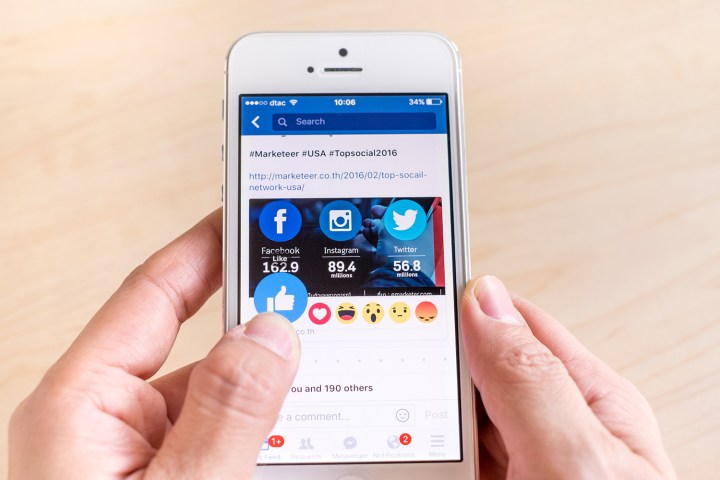
There are two versions of the test: the first plays sound as soon as the video begins on the device, while others will have to activate the sound by tapping an icon in the lower right hand corner of the videos. The latter is currently the same method that is used in current versions of Facebook elsewhere.
Even with the autoplaying of sound, the app still obeys your volume settings. So if your phone’s on silent the sound won’t play. But if it’s on, each video will start playing sound as you scroll by it — unless you specifically opt against it by making a change to your Facebook settings.
Tuesday’s move is yet more evidence that the social networking site sees its future in video. Earlier this year it began pushing users to use its Facebook Live feature by giving it prime real estate with an always visible button in the top menu bar of the app. It now even lets you post videos as replies to Facebook posts, too. Add to this multiple instances where
But despite Facebook’s enthusiasm, this feature seems destined to become a flashpoint. Web users have complained in the past about advertisers that have employed similar tactics, and some Digital Trends’ readers have complained to us over the years when videos played automatically as part of our stories. That should be for content that the reader is actively searching out.
Will our Australian friends have a similar reaction to Facebook’s new video functionality? Time will tell.


